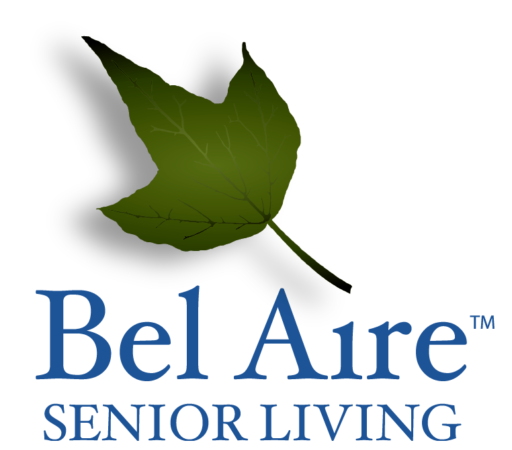
7 FINANCIAL QUALIFYING QUESTIONS FOR SENIORS
Many seniors and their families are unprepared for the costs associated with senior care. The good news is that there are companies coming into the industry to help families fund private pay senior living.
1. Are you a Veteran or a Surviving Spouse of a Veteran?
Over 80% of Senior Living prospects are veterans or a surviving spouse of a veteran. They need to understand the Aid & Attendance benefit and their qualification status, so they can incorporate the benefit into their financial planning. There is no longer an $80,000 maximum asset limit, and Veterans and surviving spouses with assets above $100,000 regularly qualify. The benefit is not a “yes” or “no” qualification; it is an “if” and “when.” Communities must work with an expert and not a financial planner or elder law attorney who offers to “help” for “free” in order to access assets to sell financial products (usually annuities) or spend down assets for Medicaid qualification.
Learn more about the Veteran Benefits
2. Do you have a Life Insurance Policy?
Seniors abandon millions of dollars of life insurance assets every year by surrendering their policies for pennies on the dollar or by non payment of premiums – because they do not know there are other options. Seniors have the option to sell their policies today to supplement the cost of home care, assisted living, or skilled nursing care. Cashing out the policy today will provide much more revenue to fund care than abandoning or surrendering the policy. Life insurance policies are assets that seniors own and have the right to sell. Once the policy is sold, the asset is held in an irrevocable trust that pays directly for care. The senior can determine how much of the asset is to be set aside for inheritance, and how much to allocate for care. There is no cost to either the senior living community, the family, or the resident.
3. Do you have a Long Term Care Insurance Policy?
We are seeing an increased number of long-term care insurance policies presented as payment vehicles for care. The problem is that after paying premiums for decades, insurance companies often issue denials when it comes time to activate the policy as reimbursements for care, and it is very confusing for families to try to work through the bureaucracy on their own. Typically, community teams try to make calls on behalf of the families which is time consuming and often unsuccessful. Very few people seem to know that there are professionals who specialize in advocating for seniors and can work through the insurance process to validate claims.
4. Do you know how to establish a realistic Budget?
Families need to feel comfortable with how much they can afford and how long the funds will last in funding the cost of care. The problem is often adult children who have become responsible for figuring out a funding strategy for their parents are often stumped about where to begin. Most are unaware that there are companies and consultants that help families with a cash flow analysis quickly and comprehensively. The two most common mistakes made by adult children is determining their affordability range and leaving out income and only taking into account assets.
5. Do you have a home to sell and do you need to sell it before moving into a community?
For many seniors who do not have other funding vehicles, their home becomes their financial resource. It is important to understand the plan and create a time frame to rent, sell the asset or use reverse mortgage and have resources available to support their goals. There are companies who will coordinate the sale of the home (including de-cluttering, cleaning, repairs, and staging), assist with downsizing (yard sales, donations, auctions, etc.), hire moving companies, and unpack/ settle in the resident into their new living situation. There are even companies that will purchase the home!
We have partnered with Brett Wilde Real Estate Team to help you sell your mom or dad’s home quickly. Did you know they provide FREE Moving Services to help our clients move locally? And they help you pay the Bel Aire Admission fee if you hire them and they sell your home?
Learn more how Brett Wilde Real Estate Team can help you here.
6. Did you know about Long Term Care Riders?
Some life insurance policies and annuity contracts contain “Long Term Care Riders”. A rider is an addendum to the policy or contract that specifies specific benefits that the provider will pay to the contract owner to assist in paying for their own long term care needs. Additionally, if the policy owner has been determined to be terminally ill, many of these contracts will advance a portion of the policy’s death benefit to the contract owner. Such advances can be utilized for hospice, assisted living and other expenses. Additionally, viatical settlements against life insurance policies may also provide a much needed source of cash to pay for end of life care. To determine if you have a policy or contract with rider benefits, visit with a financial professional who can guide you through the process.
7. Are your resources insufficient to cover the costs of medical bills?
Medicaid has long been a resource for individuals whose resources are insufficient to cover the costs of medical bills. The medicaid New Choice Waiver provides additional help for long-term care scenarios. “This waiver is designed to serve people who meet nursing facility level of care and who have been residing long term in a nursing facility or assisted living facility.” The waiver will pay around $2,000 per month to assist with long-term care to those who qualify. However, the state has a limit on the number of individuals that can receive waiver benefits.
Unfortunately, many people mistakenly believe that to qualify for this and other Medicaid services, they will lose their retirement, life savings, home, etc. However, with proper planning and advice, individuals may still be able to take advantage of this service and comply with the eligibility requirements.
Disclaimer
It is important to call to your attention that while this report provides basic information on a number of programs, it is not a comprehensive list of all the resources you will find to be available to you. It also should not be used as a substitute for professional financial planning. The rules governing many of these resources can be complex and confusing. Some of these programs require advanced financial planning to take full advantage of the benefits provided. We encourage you to meet with a financial planner who can help guide you through the process.
If you might need a recommendation of a financial firm that can assist you in this process, we would like to recommend Utah Senior Planning.
This free report is provided courtesy of Bel Aire Senior Living, an assisted living facility in American Fork, Utah that provides Respite Care, Type I, Type II, and Alzheimer’s Assisted Living Services. If you would like more information, or guidance with these financial resources please contact us.
Please reach out to Bel Aire Senior Living at
801-763-0622
to be introduced to any of these resources!
